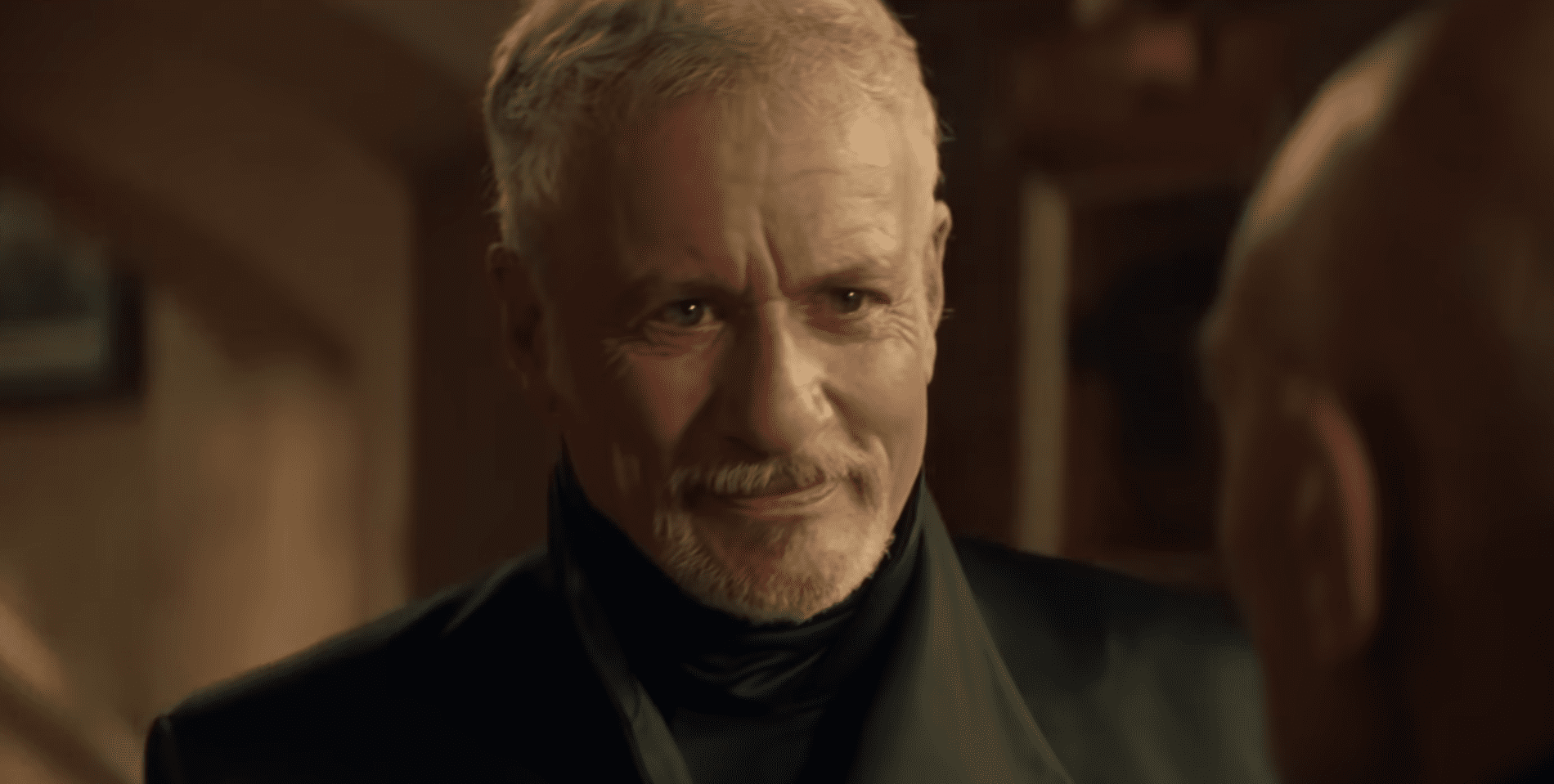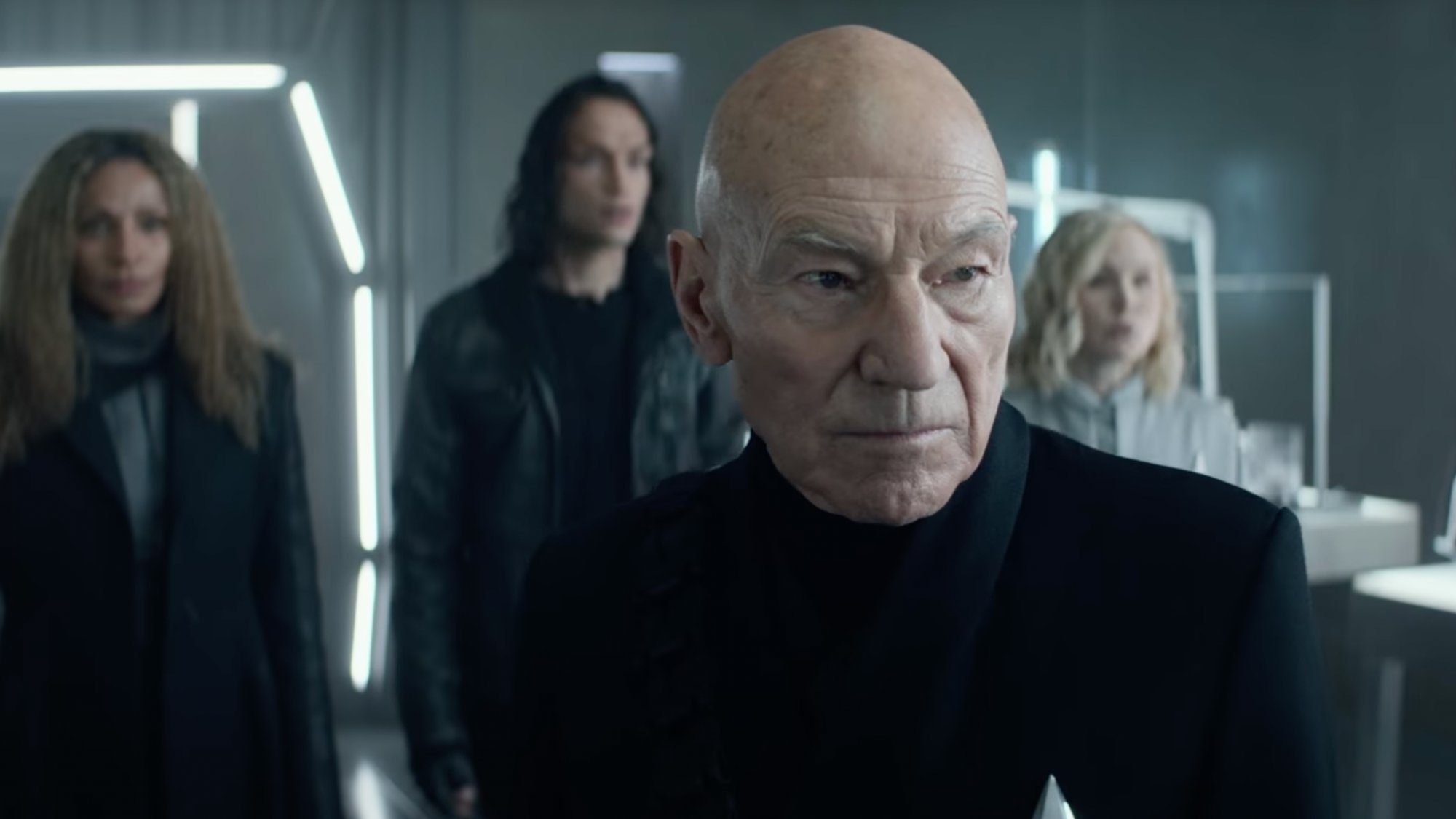REVIEW: Star Trek: Picard – Season 2, Episode 1 “The Star Gazer”
Picard Season 2 Episode 1, “The Star Gazer,” released earlier today on Paramount+, and it is as poorly written and divisive as has become the norm for all current Kurtzman Trek. The few characters who have realized personalities are insufferable and egotistical, despite being the supposed “vehicles” for the audience to see themselves. Additionally, all the legacy characters that fans of the franchise have come to know and love are again being used to market this next insult to Star Trek canon while having their souls torn out and debased on the altar of agenda to prop up the new characters.
This episode is nowhere near as offensive to the Star Trek franchise and characters as was the stable of season 1. That is because so little happened in this episode; people just wander about waiting for the plot to happen. However, “The Star Gazer” does set up the tools to destroy even more of the canon and could become even more offensive to the idea that is Star Trek.
**Spoilers**
Season 2 sees Picard again recruited by Star Fleet to look into a space anomaly that is crying out for him by name in a thousand different languages. Picard joins a crew to investigate the anomaly, only to discover that a Borg flagship is coming through it. The Borg send their queen to Picard’s vessel and assimilate it into the hivemind. To prevent the ship and crew from getting converted, Picard initiates the self-destruct sequence and blows up his crew. Picard awakes to find himself back on Earth, once again the plaything of his old enemy Q. Add in some weird dreams and some expressionless staring from Picard, and that is the episode in its entirety. “The Star Gazer” had roughly 10 minutes worth of story stretched over an hour’s length, creating the same boring and heartless show that fans have become accustomed to these last few years.
This show is still not Star Trek, it is still not The Next Generation, and this is still not Jean Luc Picard. This shade of a man is in no way, shape, or form the same character. He was once full of hope, drive, and a desire to be morally good; that is all gone now, leaving only an empty vessel. Even Seven of Nine, a clear candidate for the fulfillment of modern feminist political checkboxes, was hollowed out and regressed, all her complexity and empathy torn away by talentless hacks.
“The Star Gazer” may not have been as offensive as ones prior, but the setup for Q and the series’ choice to go back in time to the current day is setting the subsequent episodes up to be even more offensive and damaging to Star Trek than even the prior season could have hoped. These writers have neither the intelligence nor the skill to write the complexities of Q scenarios and conflicts in the way the original show did. This new Q will just be a bastardized version of himself that in no way resembles the intelligent, thought-provoking, and maniacal child that he initially was. There is absolutely no hope that these writers will do Q justice; they will ruin his character, as they have already done to Picard and Seven of Nine.

The potential time travel to 2024 is so concerning because the writers will undoubtedly use it as an opportunity to veer ever further from canon before using the excuse of “it’s a different timeline” if anyone dares question if this show can even be called Star Trek. Additionally, the episode and the season previews suggest that the reason for the time travel is because Q apparently changed the future to be some sort of totalitarian hellscape, which is very ironic considering the type of government officials and policies that these actors and writers seem to support. They fail to see the similarities between those they praise in the real world and those they will criticize in the show.
None of the characters are written with any sort of complexity in “The Star Gazer,” especially Dr. Jurati. She’s still just as annoying and ridiculous as she was in season 1. In her main scene, she drunkenly waddles across the bridge and mocks the chain of command and the male Captain before solving an audio signal puzzle that neither the crew nor the ship’s computer could. She deciphers this impossible signal’s secret in two seconds flat and with just a single button push. How!? No male or female of any species, except maybe Vulcans, could have done that. The only Star Trek character that could have accomplished that was Data because he’s basically an advanced supercomputer. There’s no way this random human could have done this impossible thing.

Seven of Nine’s entire character arc from Voyager was about her becoming more and more human. Now, she is the least human she’s been since the very beginning of Voyager. In Picard, she’s just a raging anger machine with only that one emotion. First, she’s angry at the humans for treating her differently and being afraid of her. She even talks about hating humans. Then, when the Borg show up, she goes all-in hating them and caring about human life and the Federation before demanding that they blow up the ship to kill the Borg. She just hates everyone and everything. That is not the Seven of Nine that grew to have so much empathy near the end of Voyager. The writers regressed this amazing and complicated character, similar to how they regressed Picard’s.
They are tearing down what came before to prop up what’s new, just like what the writers of the other great franchises are doing; take down what was old, tear it down, burn it down, piss on it, then use it to support the new characters. The writing was done by a toddler; no one has character moments. All the dialogue is just how to get from A to B. “Oh, we need to walk that way. Let’s walk that way.” That’s the best type of dialogue this show contains.

Picard used to be about hope; that was the fundamental part of his character, along with his intelligence. He could be in a room with 20 antagonists, and he could talk his way out of it, beating them with the silver tongue that he’s known for having. But in “The Star Gazer,” there’s a part where the Borg Queen is coming over to his ship, and all of his officers start advising him with conflicting suggestions like attacking, negotiating, or running. Picard has been in those types of high-stress scenarios before, and in the past, he has always taken control, he’s always been strong, he’s always had a plan. Even when he was wrong, he was in control, and he was confident in what he was doing. In this episode, he just goes, “I don’t know,” and stares at everyone in his best Joe Biden impersonation. Even when the crew is getting gunned down, he simply watches with a blank expression, contributing nothing to the events. That is not Jean Luc Picard. Picard is not a mindless coward.
“The Star Gazer” is, again, not as offensive as the prior season, but it is going down a path that has far more potential to offend the fandom and to destroy what is left of this franchise than season 1 could ever hope to achieve.
Picard: Season 2, Episode 1
Plot - 2
Acting - 3
Progression - 2.5
Production Design - 4
Themes - 1.5
2.6
Why?
This episode was not as offensive as the prior season, but it is going down a path that has far more potential to offend the fandom and to destroy what is left of this franchise than season one could ever hope to achieve.







